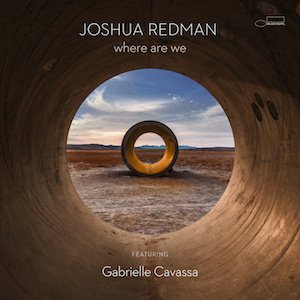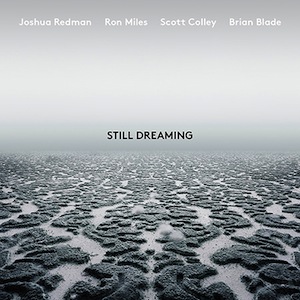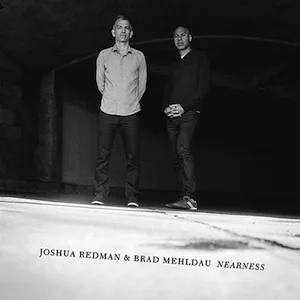Label: Blue Note Records, 2023
Personnel - Joshua Redman: tenor saxophone; Gabrielle Cavassa: vocals, guitar (#13); Aaron Parks: piano; Joe Sanders: bass; Brian Blade: drums // Guests - Kurt Rosenwinkel: guitar (#2); Joel Ross: vibraphone (#3); Nicholas Payton: trumpet (#6); Peter Bernstein: guitar (#7).
Esteemed American saxophonist Joshua Redman has harnessed significant inspiration during pandemic times and conceived his first album with vocals. Teaming up with New Orleans-based vocalist Gabrielle Cavassa, one of the brightest new discoveries in vocal jazz, and bringing together a trusty new rhythm section of Aaron Parks on piano, Joe Sanders on bass and Brian Blade on drums, Redman creates an engrossing conceptual album that takes us on a journey across cities and regions of the US. On selected tracks, four jazz heavyweights join the core ensemble as guests to pay homage to their respective cities.
The ride begins brilliantly with “After Minneapolis”, the sole Redman composition, which contains excerpts of Woody Guthrie’s famous folk song “This Land is Your Land”. The saxist starts unaccompanied, squeezing notes with dramatic expression before Park's stealthy entrance. Then it’s Cavassa who injects warmth and vulnerability, having Sanders working in parallel. The hitherto composed atmosphere is shaken by rhythmic kicks followed by an irresistible harmonic flow over which Redman dishes out a scene-stealing solo packed with energy.
The following couple of tracks feature amazing guests. The firm rendition of Bruce Springsteen’s “Streets of Philadelphia” is elevated by an unassisted preface by guitarist Kurt Rosenwinkel, who shows off his flexible fingers. Cavassa sings over Blade’s impeccable beat, with Parks and Sanders joining a minute later to generate a temperate propulsive funky groove. “Chicago Blues” is an expert assemblage of Count Basie’s smooth swing classic “Goin' to Chicago Blues” and several motifs drawn from “Chicago” by the indie pop multi-instrumentalist Sufjan Stevens. With an emotional Moby-like piano pattern at the base, it highlights the always-to-the-point mallet work of vibraphonist Joel Ross.
The remaining two pieces with guests are “Do You Know What Means to Miss New Orleans”, a cool vehicle showcasing an expressive Nicholas Payton trumpet statement as well as Redman’s distinguished phraseology; and “Manhattan”, a wonderful tune that shines brightly with the presence of guitarist Peter Bernstein. He and the bandleader alternate sections of the main melody with gusto.
Heading Northeast, “That’s New England” keeps its airily sweet balladic tone even while instilling excerpts from 20th-century modernist composer Charles Ives’ “Three Places in New England”. The Southeastern state of Alabama is a required stop as a saxophone intro leads to the standard “Stars Fell on Alabama”, delivered as a sax/vocals duet, and then ends in John Coltrane’s “Alabama”, a soul-stirring escape that explores a bit more off the limits, into abstract modalism.
Where Are We is another compelling offering from a marvelous saxophonist who found the perfect singer to fly with.
Favorite Tracks:
01 - After Minneapolis ► 07 - Manhattan ► 12 - Alabama












